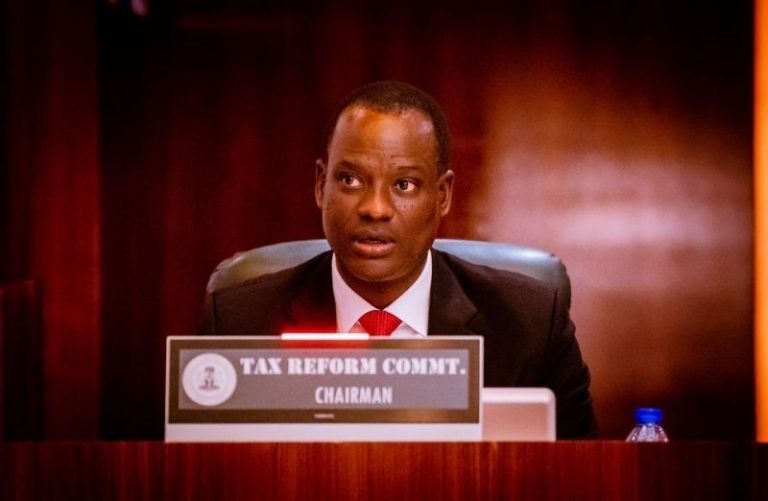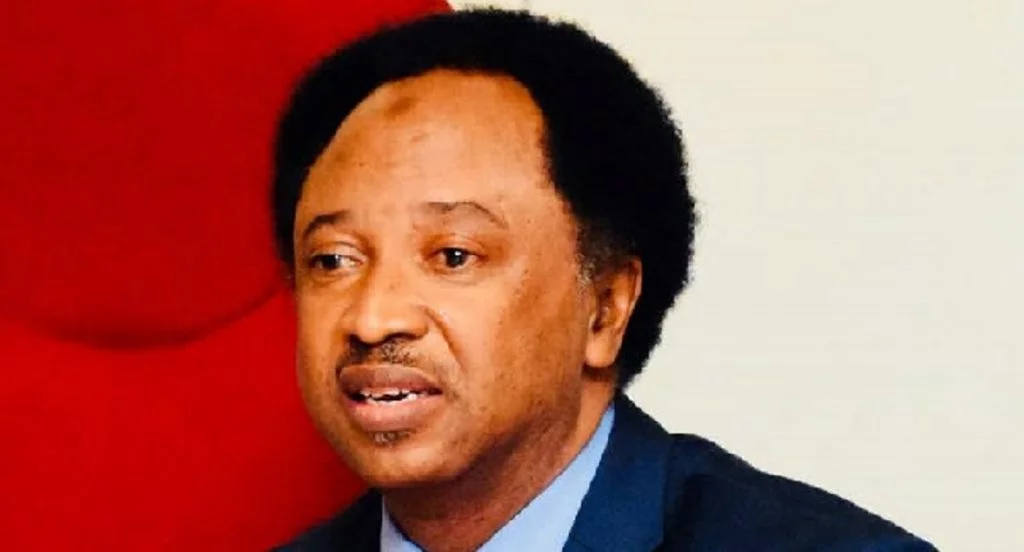News
5% Fuel Surcharge: What Nigerians Should Know

Confusion has erupted online over a supposed 5% fuel surcharge under Nigeria’s new tax laws, with many fearing a sudden increase in fuel prices.
The chairman of the Presidential Committee on Fiscal Policy and Tax Reforms, Taiwo Oyedele, on Saturday through a post on X, clarified what is fact and what is fiction.
The controversy arises from the recent passage of the Nigeria Tax Act, 2025, which consolidates and harmonises previous tax laws.
Some social media posts suggested that President Bola Tinubu’s administration had introduced a new surcharge on fuel, sparking public concern.
Oyedele clarified: “The charge is not a new tax introduced by the current administration. The provision already exists under the Federal Roads Maintenance Agency (Amendment) Act, 2007. Its restatement in the new Tax Act is for harmonisation and transparency rather than immediate implementation.”
According to Oyedele, the surcharge is meant to fund road infrastructure, an area that has historically suffered from underfunding.
Over the years, Nigeria’s road network has faced chronic maintenance challenges, resulting in potholes, travel delays, and higher vehicle operating costs.
Oyedele further noted that the surcharge is intended to create a dedicated, predictable funding source for road construction and maintenance.
READ ALSO:Nigerian Lawmakers Approve Tinubu Tax Reform Bills
Oyedele addressed key questions raised by citizens:
Will the surcharge start automatically in January 2026?
No. It will only take effect when the Minister of Finance issues an order published in the Official Gazette:
“The surcharge does not take effect automatically with the new tax laws. It will only commence when the Minister of Finance issues an order published in the Official Gazette as stated under Chapter 7 of the Nigeria Tax Act, 2025. This safeguard ensures careful consideration of timing and economic conditions before implementation,” Oyedele stated.
Does it apply to all fuels?
No. Household energy products such as kerosene, LPG, and CNG are exempt. Clean and renewable energy products are also excluded to support Nigeria’s energy transition agenda.
Why maintain the surcharge amid economic hardship?
Oyedele explained that the fund is meant as a dedicated mechanism for road maintenance:
READ ALSO:FG Sues Binance For $81.5bn In Economic Losses, Back Taxes
He said, “The surcharge is designed as a dedicated fund for road infrastructure and maintenance. If implemented effectively, it will provide safer travel conditions, reduce travel time and cost, lower logistics costs and vehicle maintenance expenses, which will benefit the wider economy. This practice is virtually universal with over 150 countries imposing various charges ranging between 20% to 80% of fuel products to guarantee regular investment in road infrastructure.”
Could subsidy savings cover road funding instead?
The Chairman of theCommittee on Fiscal Policy and Tax Reforms said: “While subsidy savings will provide some funding, they are insufficient to meet Nigeria’s huge and recurring road infrastructure needs among other public finance needs. A dedicated fund ensures reliable and predictable financing for roads, complementing the budget and ensuring roads are not left underfunded.”
Does this contradict the tax reform objective of easing citizens’ burden?
READ ALSO:Tax Reform Bills Offer 55% To States In New Sharing Formula
Oyedele reassured: “The reforms have already reduced multiple taxes and removed or suspended several charges that directly affect households and small businesses, such as VAT on fuel, excise tax on telecoms, and the cybersecurity levy. By harmonising earmarked taxes, government is reducing duplication and ensuring a more efficient tax system.”
Why not remove the surcharge entirely?
He clarified: “Yes, the surcharge has been removed from the FERMA Act and incorporated into the new tax laws which are designed to provide a forward-looking legal framework for Nigeria. Keeping this provision in place within a harmonised legal framework ensures Nigeria is prepared to address critical challenges, such as sustainable road financing and even climate change impacts. It is not about immediate implementation, but to ensure the law provides a clear and effective framework for when it becomes necessary in the future.”
In summary, Oyedele stressed that the surcharge is not new, not immediate, and selectively applied. Its inclusion in the law is about transparency, preparedness, and sustainable funding for Nigeria’s roads, and it aims to address long-standing gaps in infrastructure financing.
(PUNCH)
News
Trump’s Airstrikes: Halt Military Cooperation With US Immediately – Sheikh Gumi Tells Tinubu Govt

Islamic cleric, Sheikh Ahmad Gumi has called on the Federal Government to immediately halt all military cooperation with the United States following reported US airstrikes.
Gumi warned that American involvement could worsen Nigeria’s security challenges and undermine national sovereignty.
Gumi made the call in a statement posted on his Facebook page on Friday.
He said while Islam permits the fight against terrorism, such actions should only be carried out by what he described as “clean hands,” arguing that the United States lacks the moral authority to lead such efforts because of its global military record.
READ ALSO:US Dept Of War Shares Video Of Air Strikes In Nigeria
According to the cleric, Nigeria made a mistake by allowing foreign powers to play a role in its counterterrorism operations, insisting that “terrorists do not truly fight terrorists” and that such interventions often result in civilian casualties and hidden political motives.
Gumi warned that allowing Nigeria to become a theatre of war would attract anti-US forces into the country, further destabilising it.
He also cautioned that US involvement, particularly under claims of protecting Christians, could polarise the country along religious lines.
READ ALSO:Trump To Attend FIFA World Cup Finals Draw On Friday
The cleric further argued that airstrikes alone cannot defeat terrorism, stressing that effective counterterrorism requires strong ground operations, which he said Nigeria has enough personnel to carry out if properly organised.
“This is the mistake Nigeria has made. Terrorists don’t fight terrorists in truth; they may only kill innocent people and have ulterior motives behind the drama of fighting ‘terror’.
“As a principle, no nation should allow its land to be a theater of war. And no nation should allow its neighbors to be their enemies.
“If Nigeria wants military assistance, China, Turkey, and Pakistan can do the job effectively,” part of his statement reads.
News
Shehu Sani Reacts To Trump’s Military Strikes In Nigeria

Former lawmaker, senator Shehu Sani, has reacted to reports of United States military strikes on terrorist targets in Nigeria’s North-West, saying foreign powers cannot permanently handle the country’s security challenges.
Sani made the remarks on Friday via his X handle while responding to a post by the United States Africa Command, AFRICOM, which indicated that the strikes were carried out in coordination with Nigerian authorities.
According to him, if the reported strikes were indeed a joint operation with Nigerian security agencies, then such action was justifiable, given the threat posed by terrorist groups in the region.
READ ALSO:US Dept Of War Shares Video Of Air Strikes In Nigeria
He described terrorists operating in parts of northern Nigeria as “cancerous cells,” stressing that they survive through violence and should be confronted decisively.
Sani also dismissed narratives suggesting that terrorist attacks target only one religious group, describing such claims as false and misleading.
He said: “If actually, the military strikes against the terrorists targets in the North Western part of Nigeria were a joint operation with the ‘Nigerian Authorities’ as posted by the US AFRICOM on their verified X handle, then it’s a conscionable action.
READ ALSO:JUST IN: US Forces Bomb Terrorists Camps In Nigeria
“Terrorists have become cancerous cells in our part of the country.They live by the sword.The narrative that the evil terrorists only targets one faith, remains absolutely false and misleading.
“Again, the ultimate security and peace in our country lies with ourselves and not with the US or any foreign power. They can complimentarily or unilaterally strike, but they can’t eternally fight our battles.”
News
UKWU! Timaya Falls On Stage While Trying To Lift Plus-sized Woman During Performance [VIDEO]

Nigerian singer, Timaya fell on stage while trying to lift a plus-sized lady during performance.
The incident occurred during his ‘Ukwu’ performance at the Gbaramatu Christmas Carnival in Delta State.
READ ALSO:Saboteurs Against Presidential Amnesty Reforms – General Ndiomu
Timaya in a now trending video on social media collapsed after the plus-sized woman jumped on him midday into his performance.
The singer later got up and continued his performance amid cheers from the crowd.
Watch video here
https://x.com/hypetribeng/status/2004263337572684157?s=20

 News4 days ago
News4 days agoPHOTOS: New Era In Furupagha-Ebijaw As Okpururu 1 Receives Staff Of Office

 News3 days ago
News3 days agoUBTH CMD Marks 120 Days In Office, Expresses Commitment To Providing Conducive Working Environment

 News4 days ago
News4 days agoOPINION: Gumi And His Terrorists

 News3 days ago
News3 days agoFIRS Confirms NIN As Tax ID

 News4 days ago
News4 days agoFG Declares Public Holidays For Christmas, New Year Celebrations

 Metro3 days ago
Metro3 days agoFintiri Pardons Man Sentenced To Death For ‘Killing Herdsman In Self-defence’, Others

 News4 days ago
News4 days agoOPINION: Christmas And A Motherless Child

 News3 days ago
News3 days agoOPINION: My Man Of The Season

 News2 days ago
News2 days agoJUST IN: Kano Lawmaker, Sarki Aliyu Daneji, Dies Hours After Colleague’s Passing

 News3 days ago
News3 days agoKWAM 1 Withdraws From Awujale Race, Ends Court Challenge
























